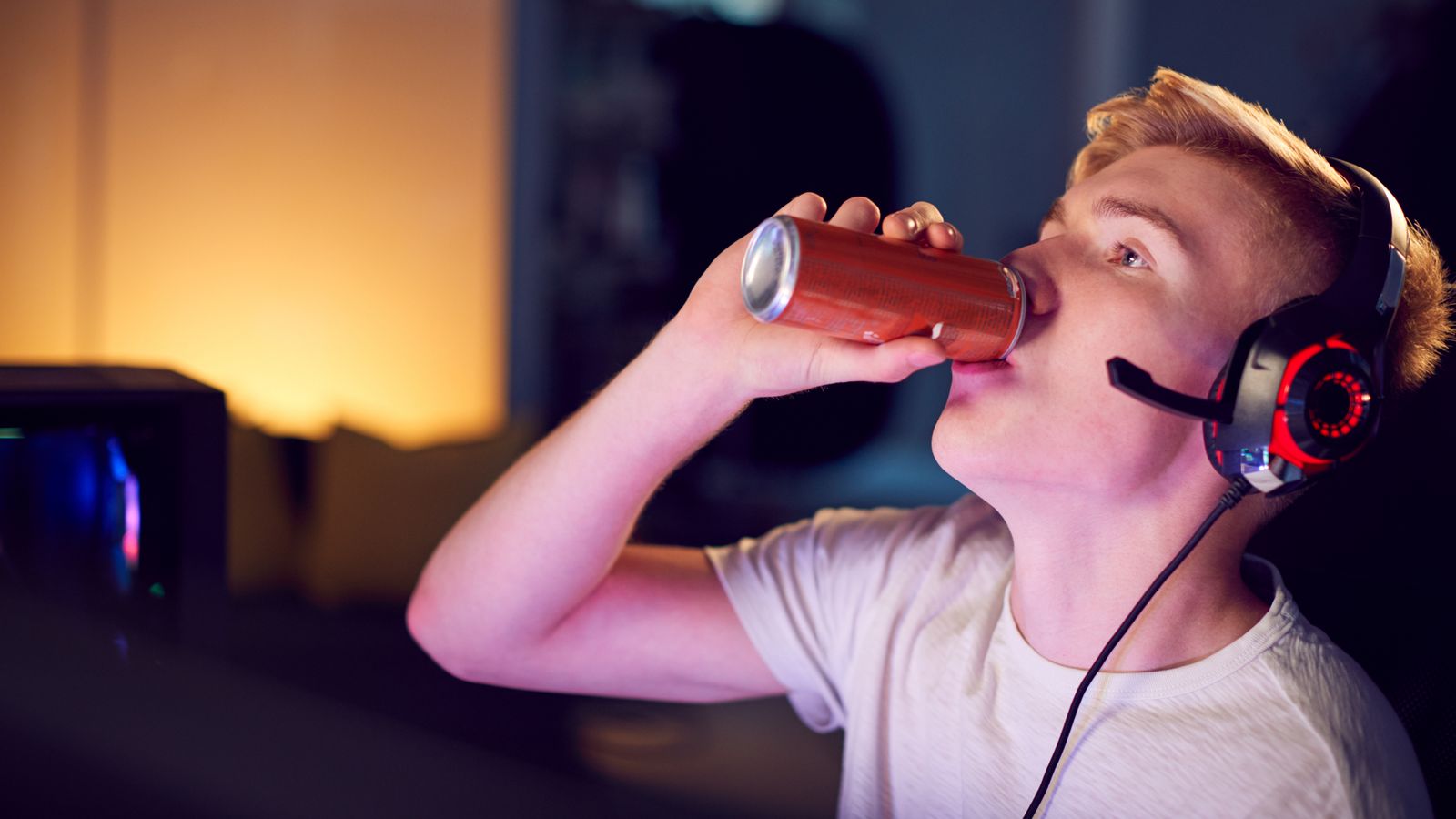Up to one in three UK children are consuming energy drinks which could be impacting their behaviour, new research suggests.
A government-commissioned study found that many under-18s enjoy the caffeinated drinks, with some having them at least five days a week.
The research was triggered after the government ran a consultation on banning the sale of energy drinks to children in 2018 – but only two UK studies on the topic were available at the time.
Ministers then proposed a ban on selling the drinks to children – but this has not yet been implemented.
Experts from the University of York and University College London (UCL) examined what type and how many energy drinks British children were consuming for the study in BMJ Open.
They also looked into any potential impact on young people’s physical and mental health and their behaviour.
It found that between 13% to 67% of children worldwide had consumed energy drinks in the past year.
Sir Keir Starmer bundled into back of police car after being mobbed by protesters shouting ‘Jimmy Savile’ at Labour leader
Levi Bellfield: Serial killer may have committed more murders, says ex-Met Police detective
A-Levels and GCSE exams: What advanced information has been released for this year’s examinations?
A review of UK studies and datasets which included thousands of young people found that between 3% and 32% of children consumed energy drinks at least one day a week.
One large UK study also found that around a quarter of teenagers aged 13 and 14 had one energy drink or more every week, rising to between a quarter and a third of children aged 15 to 16.
Physical symptoms linked to energy drinks
Separately, a study from Wales, Health Behaviour in School Children, discovered that youngsters who consumed the drinks at least once a week were significantly more likely to report physical symptoms, including trouble sleeping, headaches, and stomach problems, than those who drank none.
Overall results suggested that having the drinks five or more days a week was linked to low psychological, physical, educational, and overall wellbeing.
Experts also found that boys drank more than girls, while consuming energy drinks was associated with more headaches, sleep problems, alcohol use, smoking, irritability and being excluded from school.
Lead author of the paper, Claire Khouja, from the University of York, said: “While more research is needed to track the effects of energy drinks on children who drink them, our research has uncovered consistent evidence of links between the regular consumption of these drinks and harmful effects on children’s overall wellbeing.
“These findings offer support for a government policy banning the sale of energy drinks to children.
“Our study also indicates that children who are better informed about the contents of energy drinks, drink less, suggesting that an education campaign and/or more prominent warnings on packaging could reduce consumption.”
Energy drinks contain caffeine as well as other ingredients such as vitamins, sugar, guarana and ginseng root, and have been marketed over the years as a good way to get a boost.
The new research comes after medics warned of the dangers of energy drinks in the British Medical Journal (BMJ) last year when a university student developed heart failure.
The 21-year-old spent 58 days in hospital after consuming four 500ml energy drinks every day for two years and was subsequently admitted to intensive care.
He became so ill that doctors considered whether he needed an organ transplant.
‘Not recommended for children’
Researchers for the latest study said their findings relied on surveys – so they cannot prove that energy drinks cause problems for children.
They added that the overall evidence was weak, though it was consistent, and further studies could be needed.
The British Soft Drinks Association’s director-general, Gavin Partington, said: “Our members do not market or promote energy drinks to under-16s, nor do they sample products with this age group.
“In addition, energy drinks carry an advisory note stating ‘not recommended for children’.
“The BSDA Code of Practice on energy drinks was introduced by and for our members in 2010 and contains a number of stringent points on responsible marketing. We remain committed to supporting the responsible sale of energy drinks.”






















